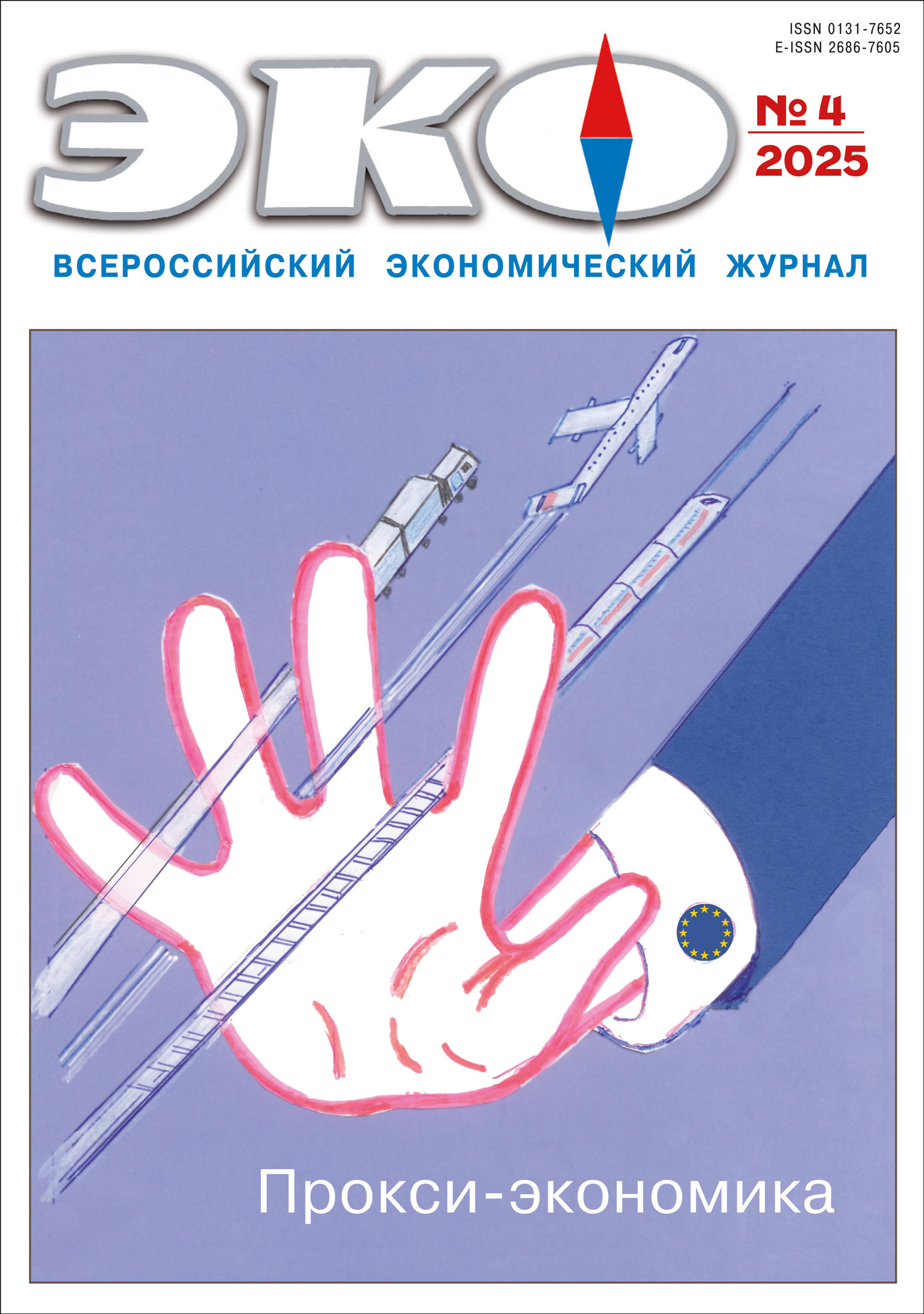ECOLOGY AND ECONOMY
Development of International Carbon Regulations in the Era of Globalization
Published 2025-07-24
Keywords
- sustainable development; decarbonization; carbon neutrality; globalization; SDGs
How to Cite
1.
Lipskaya Т. Development of International Carbon Regulations in the Era of Globalization. ECO [Internet]. 2025 Jul. 24 [cited 2026 Jan. 30];55(4):200-15. Available from: https://ecotrends.ru/index.php/eco/article/view/4889
Abstract
The paper covers a wide range of issues related to carbon regulation, including an analysis of the historical development of regulatory mechanisms, as well as a study of the current situation in the world and Russia’s position in this regulatory system. Having studied the problems that countries have faced in the past few years, the author identifies two types of imbalances: in developed countries, there has been a shift in priorities towards ensuring socio-economic indicators, manifested in underfunding of climate programs, and in developing countries, in addition to a decrease in the volume of «green» financing, the distribution of the financial burden of reducing emissions between producers and consumers is actively discussed. An analysis of the methodology and tools of carbon regulation made it possible to identify potential areas for activating its development through strengthening international cooperation, developing national and regional platforms for «green» financing, and reducing barriers for developing countries by redistributing the financial burden between producers and consumers.References
- Адно Ю.Л. и др. Россия и мир: 2025. Экономика и внешняя политика. Ежегодный прогноз / рук. проекта: А.А. Дынкин, В.Г. Барановский; отв. ред.: И.Я. Кобринская, Г.И. Мачавариани. Москва: ИМЭМО РАН, 2024. 213 с.
- Завьялова Т.В. Климатическая повестка в России: смещение ориентиров и новые вызовы // Мир новой экономики. 2024. Т. 18. № 3. С. 125–137.
- Карцхия А.А. Правовые перспективы климатической повестки как основы биологической безопасности человека: российский и международный аспекты // Социальные и гуманитарные науки. Отечественная и зарубежная литература. Сер. 4, Государство и право: Реферативный журнал. 2024. № 2. С. 37–51.
- Курбатова М.В., Пыжев А.И. Низкоуглеродная экономика как институциональный проект: проблема и цели // Journal of Institutional Studies. 2023. Т. 15. № 2. С. 6–23.
- Русакова Ю.А. ООН: в повестке дня – проблема изменения климата // Вестник МГИМО-Университета. 2021. № 4 (13). С. 286–294.
- Ситников С.Л. Углеродное регулирование в России: истоки и особенности // Вестник евразийской науки. 2022. Т. 14. № 6. URL: https://esj.today/PDF/44ECVN622.pdf
- Трансформация мировой экономики: возможности и риски для России. Научный доклад / Под ред. чл.- корр РАН А.А. Широва. М.: Динамик Принт, 2024. URL: https://ecfor.ru/publication/transformatsiya-mirovoi-ekonomiki/)
- Юлкин М. Антропогенные выбросы парниковых газов в атмосферу и их роль в глобальном изменении климата, Экологический парламентский бюллетень, 2024. URL: http://ecoparlament.ru/aktsenty-nedeli/view/antropogennye-vybrosy-parnikovyh-gazov-v-atmosferu-i-ih-rol-v-globalnom-izmenenii-klimata
- Ekins, P. et al. (2024). Impacts and evolution of emissions trading systems: insights from research and regulation. European University Institute.
- Monasterolo, I. et al. (2024). The role of green financial sector initiatives in the low-carbon transition: A theory of change. Global Environmental Change. Т. 89. P. 102915.
- Moosmann, L. et al. (2024). Issues at stake at the COP29 UN Climate Change Conference in Baku.
- Mor, S. et al. (2024). Kyoto protocol and Paris agreement: Transition from bindings to pledges–A Review. Millennial Asia. Т. 15. No. 4. Pp. 690–711.
- Xu, L., Yang, J. (2024).Carbon pricing policies and renewable energy development: Analysis based on cross-country panel data. Journal of Environmental Management. Т. 366. P. 121784.
- Yang, F., Sattar, U. (2024). COP29: Technology development and transfer framework. Frontiers in Environmental Science. Т. 12. P. 1349843.

